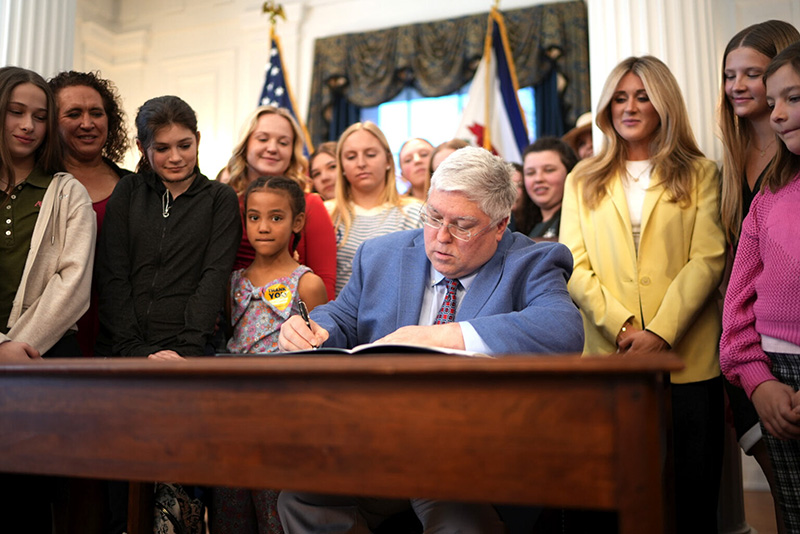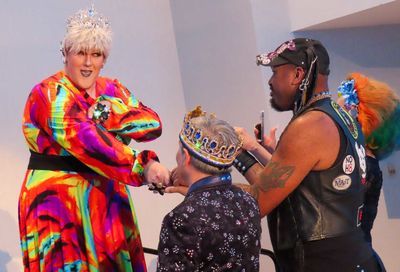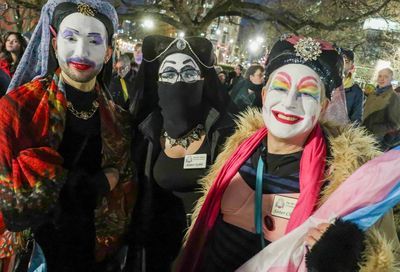Trump administration slammed for allowing shelters to turn away trans people
Advocates have criticized new standards that will likely rely on gender stereotypes or physical attributes to discriminate against trans people

Seven transgender and LGBTQ organizations are opposing a proposed U.S Department of Housing and Urban Development rule that they say encourages discrimination against transgender people.
The proposed rule, which HUD has been working on for the better part of the past year, seeks to give emergency shelters the option of turning away individuals whose assigned sex at birth does not match their gender identity, if shelter administrators have a “good faith belief” that the person “is not of the sex, as defined in the single sex facility’s policy, which the facility accommodates.”
The rule would nominally keep in place a 2012 Obama-era rule barring discrimination on the basis of sexual orientation or gender identity, but would effectively undermine that rule by eliminating 2016 HUD guidance requiring that transgender people be housed in single-sex shelters based on the gender with which they identify.
Under the proposed rule, if a person is turned away from a shelter, they must receive a transfer recommendation to another facility.
Additionally, shelter operators must be consistent in applying the same criteria to all potential lodgers, regardless of whether they choose to house a person based on their gender identity (as recommended by the Obama administration) or based solely on their assigned sex at birth.
For instance, if a shelter allows trans women who have undergone gender confirmation surgery to be housed in a women’s shelter, the same standard must apply to all similarly-situated trans women, regardless of their appearance or physical characteristics.
Proponents of the rule change say it is needed to provide cisgender women seeking shelter with a sense of safety and comfort, as women who are fleeing abusive relationships or whom have been victims of sexual assault in the past may feel threatened having to share spaces with individuals they consider to be biological men.
Both HUD, in its writeup of the rule — and HUD Secretary Ben Carson, in past comments — have previously echoed the trope that some non-transgender men may pretend to be transgender in order to gain access to women’s shelters.
But transgender advocacy organizations have balked at HUD’s rule change, saying allowing each shelter to set its own standards for whom they will admit will result in widespread discrimination, and effectively operates as a categorical ban on transgender individuals in practice.
They note that the standards adopted by shelters will likely rely on gender stereotypes or physical attributes, which could result in women’s shelters turning away a trans woman who has an “Adam’s apple” or is tall, and men’s shelters turning away a trans man for being short or perceived as having feminine facial features.
The organizations commenting on the rule include: Transgender Legal Defense and Educational Fund, the Wilton Manors-based Arianna’s Center, the New York-based GMHC, the Bronx-based Marsha’s House, the St. Louis-based Metro Trans Umbrella Group, the Bronx-based Princess Janae Place, and Translatinx Network. All of the organizations within the coalition provide assistance to transgender individuals who are housing insecure and often rely on emergency shelters for survival.
The federal government is required to review and summarize public comments before finalizing the rule and implementing it into law.
Related: Trump administration tells homeless shelters how to identify and deny access to transgender women
In their comments, the coalition argued that the proposed rule is unconstitutional, violates multiple federal laws, including the Fair Housing Act, and — perhaps most importantly — is unworkable in practice, as each shelter is allowed to set its own policy based on arbitrary measures or anti-transgender stereotypes.
As a result, the rule creates a great deal of uncertainty among trans individuals as to whether they will ultimately be able to find a place in close proximity to them that will house them.
The coalition provided individual stories from past clients, particularly Black and Brown transgender woman, who have faced discrimination in emergency shelters, to illustrate examples of real-life problems that the rule would exacerbate.
One of the stories included is that of Jack Sage, a transgender man who came out at age 16. His father refused to support him, and his mother lied about supporting his transition, subjecting him to repeated emotional abuse before ultimately kicking him out of the house. Sage “couch-surfed” for nearly a year-and-a-half before running out of places to stay.
He would find places to stay, only to be denied privacy or autonomy — such as not being allowed to shower with the door closed or being allowed to cook his own food — before being forced to move on. For a while, he slept at a co-worker’s house, then in a public park before finding a place to stay at a shelter run by local community center Casa Ruby.
However, Sage was deeply disturbed and frightened to stay at Casa Ruby, due to the organization being threatened or targeted for hate crimes — including incidents where bricks were thrown through the door — as well as the killing of transgender woman Zoe Spears, a client of Casa Ruby whom Sage knew. Sage eventually relocated to Little Rock.
But even in Little Rock, Sage was subjected to a shelter administrator who was transphobic, and came into conflict with one of the volunteers who was engaging in inappropriate behavior. Sage reported the behavior, and the volunteer was suspended, but retaliated against Sage, breaking into the shelter, attacking him, and pulling a gun on Sage and his fellow residents.
The shelter was forced to close for an entire weekend due to the gun incident. But due to the shelter’s policy that residents would lose their place if they were gone for more than 72 hours, Sage and his fellow shelter residents were forced to find other places to stay.

A stint at a religiously-affiliated shelter meant Sage was forced to be housed with women. Another shelter where he stayed did not discriminate against Sage personally, but did actively discriminate against trans women, kicking them out for wearing wigs or makeup, or for demonstrating any behavior, even hugs, that was considered homosexual behavior.
While Sage has since found more stable and permanent housing, his story demonstrates the extent to which shelters are already discriminating against transgender individuals — something that would undoubtedly worsen if the proposed HUD rule were to be enacted.
The U.S. Trans Survey has previously found that one in three transgender people have experienced homelessness at some point in their lives, and that 70% of trans individuals who stayed in a shelter reported being verbal or physical harassed or sexual assaulted due to their gender identity.
The commenters also note that the rule would seem to violate the U.S. Supreme Court’s recent finding that transgender individuals are protected from discrimination and sex stereotyping based on their gender identity by federal civil rights laws.
While that decision only dealt with employment discrimination, LGBTQ advocates believe the same principle — that anti-transgender discrimination is inherently a form of sex discrimination, should apply to instances of discrimination in housing or public accommodations.
“This latest attempt by the administration is a part of an illegal, wholesale effort to gut protections for transgender people,” Andy Marra, the executive director of TLDEF, said in a statement denouncing the rule on behalf of the trans advocacy coalition.
“HUD’s proposed rule is a cruel invitation for emergency housing providers to close their doors on the very individuals who rely most upon these services for their survival. We advise the agency to end its pursuit of discriminatory and unlawful acts targeting transgender people.”
Read more:
Rea Carey to step down as head of National LGBTQ Task Force
Republican caught mocking gay Black opponent for “the way he talks”
LGBTQ Victory Fund endorses three out gay candidates for office in D.C.
Support Metro Weekly’s Journalism
These are challenging times for news organizations. And yet it’s crucial we stay active and provide vital resources and information to both our local readers and the world. So won’t you please take a moment and consider supporting Metro Weekly with a membership? For as little as $5 a month, you can help ensure Metro Weekly magazine and MetroWeekly.com remain free, viable resources as we provide the best, most diverse, culturally-resonant LGBTQ coverage in both the D.C. region and around the world. Memberships come with exclusive perks and discounts, your own personal digital delivery of each week’s magazine (and an archive), access to our Member's Lounge when it launches this fall, and exclusive members-only items like Metro Weekly Membership Mugs and Tote Bags! Check out all our membership levels here and please join us today!
























You must be logged in to post a comment.